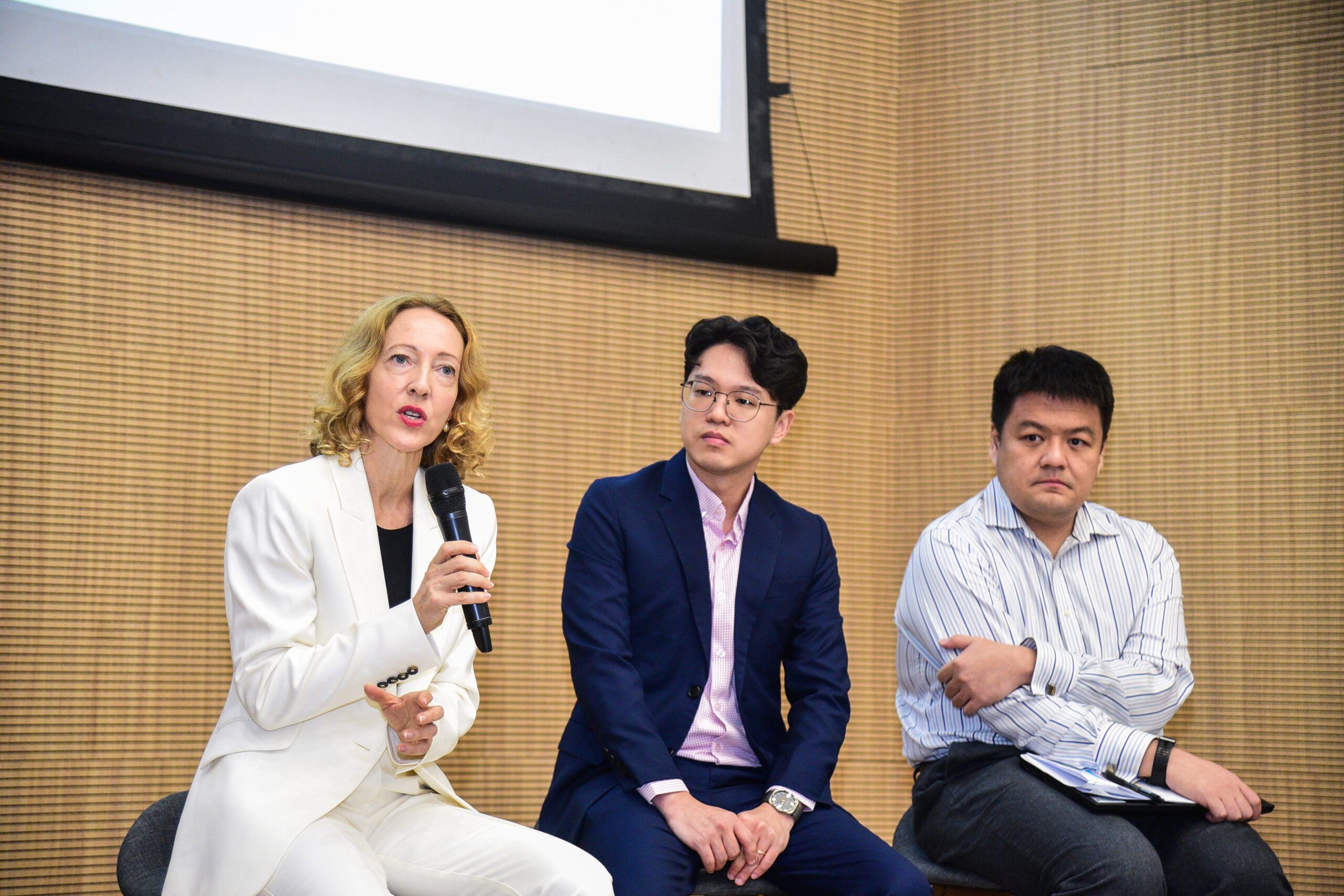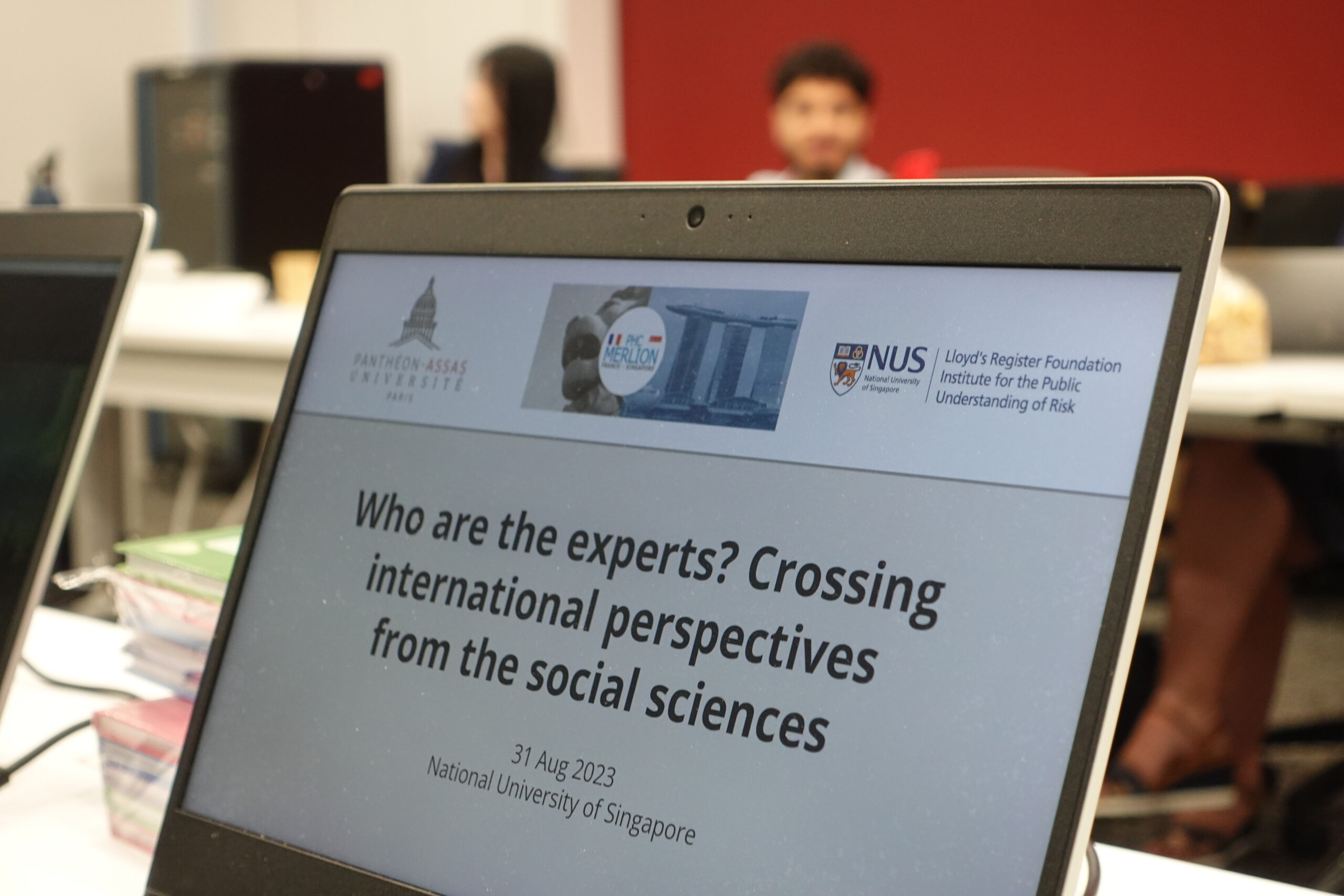Impact Stories
Can we learn from experience for better crisis management?
Lesley Cordero, a recipient of IPUR’s Fellowship, shares insights into disaster risk management
Like a train without brakes, COVID-19 continued its spread to countries all over the world despite global efforts to contain it. As at May 28, 2020, the World Health Organisation reported more than 350,000 deaths attributed to the pandemic. In this unprecedented crisis and time of deep uncertainty, the prevalence of fake news compounded the chaos and confusion amongst populations in developing and developed countries alike. Philippines is no exception.
According to Atty. Lesley Y. Cordero, 2018 recipient of the LRF Institute for the Public Understanding of Risk (IPUR) Fellowship, crises like COVID-19 call for critical time management, clear and transparent messages to the public, and assured governance.
Lesley shared these insights during an online forum organised by the Philippine Centre of Excellence for Defence Development and Security at the National Defence College of the Philippines (PCEDS-NDCP). The forum focused on COVID-19 crisis management in the Philippines and was attended by senior government officials, representatives from the military, academia and private sector.
Risk management and post-disaster recovery
As Senior Disaster Risk Management Specialist at the World Bank, Lesley is deeply involved in the World Bank’s programmes on disaster risk reduction, risk financing and insurance, prevention and mitigation. Lesley is also involved in post conflict and post disaster response, resilient recovery, and reconstruction. Her experience covers the Philippines, Myanmar and Fiji. Having served for five years as the Undersecretary at the Office of the President of the Philippines, Lesley has spearheaded several disaster recovery and reconstruction efforts including the integration of the rehabilitation and recovery program of the government for Category 5 Typhoon Haiyan, which killed more than 6,000 people in 2013 and cost about Php571 billion (SGD16 billion) in economic losses.
Uncertainty leaves people hungry for information
When it comes to decision-making in crisis, Lesley shared that there is much uncertainty and many competing factors to consider. Leaders often have to make their decisions based on limited information, in the face of tight timelines and complex operational challenges. She opined that the biggest challenge lies in the level of confidence, comfort and conviction in the decisions made and managing expectations.
Beyond the decisions and assessments, Lesley highlighted three things that are crucial for a government in communicating risks in a crisis or disaster: consistency, clarity and credibility. Constant communication on what the government is doing, managing expectations and then addressing the issues head on are important. The public needs information more than ever, she said. In the absence of clear credible information, people turn to alternative sources – including fake news.
“In a crisis, the people and the public want to feel like soldiers, we need information more than ever – silence is not an option. The public officials need to be on the platforms on which people are to be able to communicate what the government is doing and address issues head on,” said Lesley
Recounting her experience with Typhoon Haiyan, Lesley said most of the national government agencies at that time were too busy handling the relief operations and putting together the recovery plan, to the extent that no one focused on updating local government officials and more importantly the affected communities on what was happening. There was a lack of communication on explaining the disaster response efforts which resulted in more challenges during the recovery and reconstruction phase. She recalled standing in front of people and local officials and being criticised for the slow government response during Typhoon Haiyan. Taking the people’s perspective, Lesley lamented that this was due to a failure to effectively communicate what the government was doing, rather than to the delays in delivering the projects.
Building credibility
As a former Undersecretary at the Presidential Communications Operations Office in the Philippines, Lesley knows the importance of a clear communication strategy especially in times of crisis. She had the opportunity to oversee the government communication channels which included television and radio networks, and social media. Her responsibilities saw her work closely with various ministries (departments) and the military where she crafted strategic communication plans for key policies and priority programs in the country.
When reporting progress or addressing issues, credible data is crucial for communication. “Gather data. If we hear that the numbers are not telling the real story, or we are doubting the numbers that are put out there, the best way to move forward is to go local. Use technology and tools. Ask every city, province, or municipality to provide a COVID-19 baseline data so that national government will be able to include every beneficiary and no one will be left behind,” shared Lesley.
Choosing a credible spokesperson can also make a difference for effective risk communication. “For the spokesperson, it is important to be seen, to be heard, and to be believed. Whoever you will put in front of the microphone during a crisis, he or she should be credible.” Citing Department of Science and Technology Undersecretary Renato Solidum as an example, Lesley said that people listen and believe him when he speaks on earthquakes and volcanic eruptions. “He is considered as credible and people listen to him. Regular people in the mall and even cab drivers talk about what he is saying at press briefings,” shared Lesley.
Lessons for future crisis communication
New challenges will always present themselves when old ones have been overcome. This is where Lesley encouraged participants at the online forum to find opportunities. “Find opportunities where you can help, where you can contribute, where you can lead as well as shine … the key here is in a crisis, you are called to task to play your role the best way that you can.” Moving forward, adopting and adapting frameworks for the future is important to stay one step ahead of the situation and rely on collaborative governance, said Lesley, noting that the significance of keeping the network of contacts one has built and having the “it takes a village to get things done” mentality.
Typhoon Haiyan shed light on some challenges in the Philippines’ disaster risk management and crisis communication efforts. Lesley concluded from the experience that post-disaster recovery is ultimately measured by tangible action and how well the government has articulated its key message – that after a disaster, “the needs of the affected people are addressed, emergency response is fast, and rehabilitation and recovery is moving according to the timeline.”
About Lesley Cordero
Lesley is currently a Senior Disaster Risk Management (DRM) Specialist at the World Bank. She leads the DRM/Urban portfolio in the Philippines focused on disaster risk management and risk financing and insurance, and resilient and sustainable tourism. She graduated magna cum laude with a degree of Bachelor of Philosophy at University of San Carlos in 2001 and a Juris Doctor of Laws degree at the Ateneo de Manila University School of Law in 2005. She is also an Adjunct Professor at the Asian Institute of Management (AIM) for the Master in Emergency Management, Disaster Risk and Crisis Management programme.
As a recipient of the IPUR Fellowship in 2018, IPUR funded Lesley’s travel and participation in a 5-day Executive Education Programme on “Risk Communication” held in Singapore. She had the opportunity to share experiences, challenges, insights and lessons from other leaders in Asia as well as learn regional and global risk communication practices implemented.


